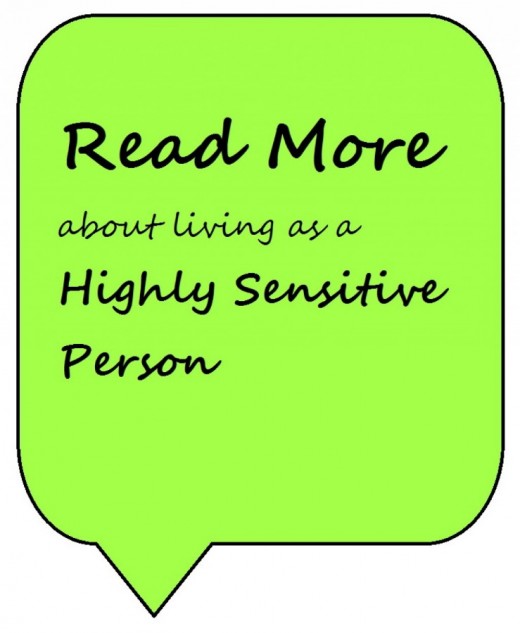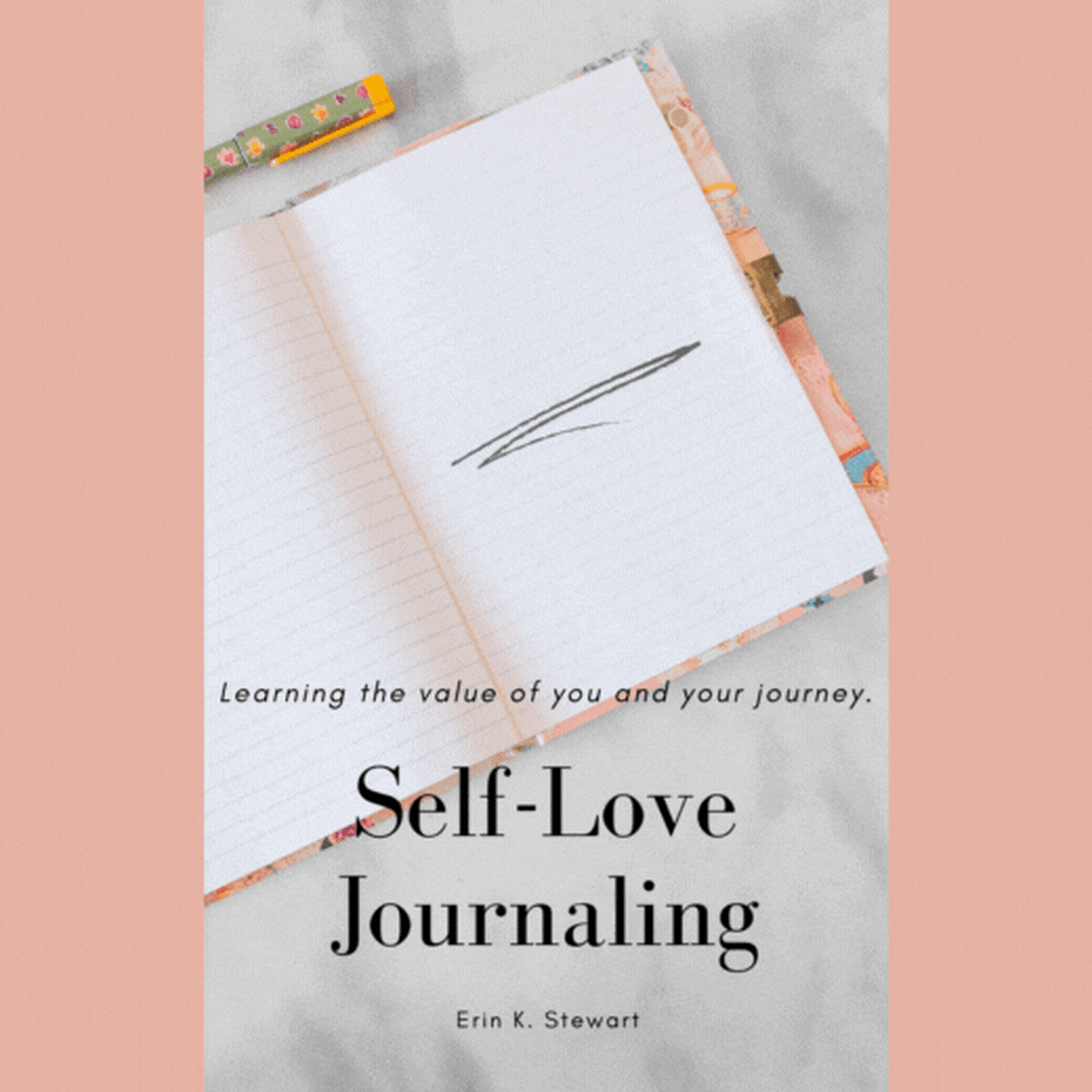- HubPages»
- Health»
- Personal Health Information & Self-Help»
- Mentally & Emotionally Balanced Living
HSP Life Nuggets: Water Under the Bridge - Letting Go Of Old Hurts and Patterns

"You Just Need to Let That Go!"
How often have you heard those words?
There's an old truism that goes "That's just water under the bridge," which many people seem able to live by.
When you're an HSP-- a Highly Sensitive Person-- it usually makes us think "yes.. well... it's just not that easy!"
Most of us realize that this saying basically implies that when something has already happened, there's nothing we can do now, and we have let it go. The truth in this is that no matter how much we think about the past, we can't change what happened.
However, many of us seem to find it extraordinarily difficult to "let things go." We like to roam around in the past and "re-live" things, over and over, and over and OVER. I use the term "like" very loosely here, because it tends to be a painful and disturbing habit. Often we do so, even though the past might be quite hurtful and unpleasant, and our present is actually quite good.

HSPs and Depth of Processing
As HSPs, we experience and feel things very deeply, so it typically follows that negative events also tend to leave very deep scars. Many of us are unable to break the cycle and leave those old scars alone, choosing instead to pick at the scabs and re-injure ourselves, over and over... engaging in a pattern that might even look to some like "an addiction to being in pain."
Maybe that sounds a bit complicated or unclear, so here's a super simple example:
You are at a job interview, and you say something (or maybe fail to say something) that you later realize would have made all the difference, and gotten you the job. For many HSPs-- even if we already have another job-- the eternal "replaying" of what happened, and "what we could have said" can be almost debilitating.
And that's a very simple and relatively "innocent" example. We tend to do the same thing with relationships, family issues, work abuse and even worse.
In many cases, we add to our own discomfort by taking simple "neutral" events from the present and projecting the most negative spin onto them, based on the past. As a simplistic metaphor: maybe it was raining on the day our ex suddenly asked for a divorce, and now we deeply believe that it's going to be an inherently "evil day" every time it rains...
... even 20 years later.
A "Must Read" for HSPs!

Knowing What it Means to be a Highly Sensitive Person-- It MATTERS!
Before we continue, a quick sidetrack:
You may have come to this article from any number of sources... and with your own interpretation of what it means to be "Highly Sensitive."
Personally, I have been familiar with the term for almost two decades, and have been actively studying and learning about how this physiological trait affects me life-- and the lives of other HSPs-- for almost as long.
I am not much for "sales pitches," BUT... if you have not read Dr. Elaine Aron's book about being a Highly Sensitive Person (inset at right), you really owe it to yourself to do so. Since its publication in 1996, it has changed the lives of millions of people.
Why does it matter? Because understanding that your sensitivity is a natural "trait" and not a "syndrome" or "mental illness"... and HOW this is so... frees you from the pervasive fear that "something is wrong with me" and allows us to simply find the best ways to navigate our lives.
It's the best $5-10 you'll ever spend...

Processing the Past: It's not about IGNORING anything
So let's return to the process of looking at and truly working through our past.
Living in that past, doesn't really serve us, most of the time.
The thing about the past is that it can be a great thing to examine and learn from, but it's generally not a healthy place to live, especially when dealing with negative events. Our excessive focus on the past tends to keep us "trapped" in processing patterns that actually no longer serve us.
That's one of the important things about lessons learned, in the past.
Another important thing to keep firmly in mind is that when people talk about past events and use phrases like "it's water under the bridge" it's not an invitation to ignore something bad that happened, nor should we forget what happened. In fact, when we find ourselves stuck in repeating negative patterns, it is often because we did try to ignore something, rather than look at it.
We must find the courage to objectively look at these events, acknowledge and allow ourselves to experience that they happened and were truly horrible, and then decide whether (and how) they serve us in the present-- or not.

Your Feelings are Valid!
Our feelings are valid.
When we-- as HSPs-- are told things like "you just need to get over that!" it is generally more hurtful than helpful... even if the person speaking ultimately has our best interests at heart.
What we must learn is that we can have valid feelings, but the actions (or RE-actions) they predispose us to take may not be serving us anymore.
We must keep in mind that difficult and painful lessons learned in the past often reflect 100% valid life strategies given the situation that was unfolding at the time the lesson was learned. Perhaps we learned to be hypervigilant and almost "psychically aware" while living an abusive childhood, or in an abusive relationship.
We must honor that we used a COMPLETELY VALID SURVIVAL STRATEGY, at the time-- it helped us make it through impossibly painful times, and we survived! And we can give ourselves a big pat on the back for that!

Reacting to our Memories
The problem arises-- and can become a toxic repetitive pattern-- when we take these strategies with us into complete different situations in the present, where they may not serve our best interests, at all.
To continue the previous example, projecting our former hypervigilance into a non-abusive relationship may actually cause all sorts of problems because we are now "constantly suspicious" of the motives of someone whom we love who is NOT "constantly plotting" to hurt us... and they will end up feeling confused and hurt because we constantly suspect-- and even accuse-- them of things they are not even thinking about.
We may also find ourselves "triggered" by perfectly harmless and innocent events... what essentially amounts to "reacting to a memory," while in a different Present moment.
Last but not least, there can be a very dark side to not examining old survival patterns. It manifests as a tendency to pursue-- and put ourselves in-- situations that "fit OUR sense of reality," rather than the actual reality that is unfolding. Even if it does not feel good, or healthy, we will choose something that feels "familiar" because there's a measure of comfort in believing that "we understand what is going to happen next," even IF "what happens next" is that someone hits us over the head with a brick.
I personally experienced this in a past relationship where I eventually realized that my partner was trying to elicit a particular type of (abusive) response from me, over and over again... and actually would get angry because my actual response didn't match her inner expectations.
A Complex Topic for Further Study and Exploration
Letting go of the past comes as a result of finding the courage to truly look at the past-- honestly and objectively-- and understanding that what happened to us back then was "then" and isn't "now."
Whereas this is "easier said than done," it's very important for HSPs, because we do have such deep experiences.
An actual step-by-step guide to the process is far beyond the scope of an article like this, but I would like to recommend-- from personal experience-- the HSP Workbook (inset at right) which I worked through a couple of times... and was very helpful in helping me come to terms with my deep feelings of being "a strange outcast" in my own family, and dealing with years of bullying back when I was in school.
The important thing I want to leave you with is that HSPs are not "broken" and we are not neurotic or mentally ill. The best thing we can do for ourselves is study and learn about the trait, so we can live rich and full lives... taking into account and honoring our sensitivity, but not living with the perception that it is a shortfall.

Further reading about being an HSP
Thank you for reading this article about being a Highly Sensitive Person!
Since first reading about the trait in 1997, I have spent thousands of hours studying, learning and understanding the many nuances of being an HSP, and how the trait influences the way we HSPs live and interact with life and the world around us.
Knowledge matters, when you're Highly Sensitive!
By that I mean that it is not enough to simply take an online quiz and declare yourself an HSP, or to believe that you are one because family, friends or a therapist told you so. "Sensitive" is a word with many meanings in modern culture... and it serves us best to learn what applies to US... and what doesn't.
In addition to the book recommendations on this page, I would also like to encourage you to check my author's page here on HubPages, where you will find a listing of the many HSP-related articles I have published here. For a good and fairly thorough introductory article, consider reading "The Highly Sensitive Person: What Exactly IS That?" also on this site. Good web resources include Dr. Elaine Aron's web site, and the HSP Notes Blog, both of which have more than a decade's worth of current and archived information, links and more.
Thank you, again, for your interest!
Sharing is Love!
If you enjoyed this article and/or found it useful, please consider sharing it with others! You can use these nifty "social sharing" buttons, out at left. The more the world hears and understands about what it means to be a Highly Sensitive Person, the better off we ALL are.
Thank you!
◄◄◄
© 2016 Peter Messerschmidt








